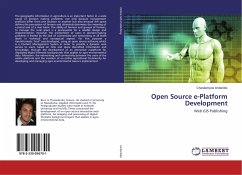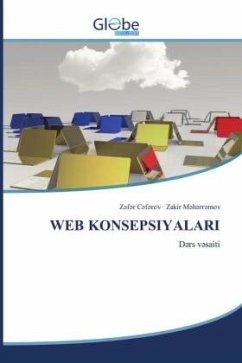
HTML Encoding Schemes
Reduction of Markup Language-Based Overhead
Versandkostenfrei!
Versandfertig in 6-10 Tagen
32,99 €
inkl. MwSt.

PAYBACK Punkte
16 °P sammeln!
The HTML and XML languages have a language basedoverhead. This quantitative study proposed severalencoding methods for the contents of HTML and XMLfiles. The files were parsed for similar words andsubsequently encoded with shorter characterrepresentations. A Web server and Web client weredeveloped to test the hypothesis that the encoding ofHTML and XML files using these methods prior totransmission by the server and decoding prior torendering by the client would might produce areduction in overall transmission time when comparedwith files that were not encoded. Presence of Zipcompression and c...
The HTML and XML languages have a language based
overhead. This quantitative study proposed several
encoding methods for the contents of HTML and XML
files. The files were parsed for similar words and
subsequently encoded with shorter character
representations. A Web server and Web client were
developed to test the hypothesis that the encoding of
HTML and XML files using these methods prior to
transmission by the server and decoding prior to
rendering by the client would might produce a
reduction in overall transmission time when compared
with files that were not encoded. Presence of Zip
compression and conversion to Binary using Huffman
Compression were also considered. The results
suggested that while there was a reduction in the
size of the files after encoding, no reduction in
transmission time was conclusively found. The data
suggest that there is an endemic cause, and further
experimentation is suggested to determine find the
source.
overhead. This quantitative study proposed several
encoding methods for the contents of HTML and XML
files. The files were parsed for similar words and
subsequently encoded with shorter character
representations. A Web server and Web client were
developed to test the hypothesis that the encoding of
HTML and XML files using these methods prior to
transmission by the server and decoding prior to
rendering by the client would might produce a
reduction in overall transmission time when compared
with files that were not encoded. Presence of Zip
compression and conversion to Binary using Huffman
Compression were also considered. The results
suggested that while there was a reduction in the
size of the files after encoding, no reduction in
transmission time was conclusively found. The data
suggest that there is an endemic cause, and further
experimentation is suggested to determine find the
source.












